Do you ever wake up feeling exhausted or irritable despite getting a full night’s rest? Do you snore loudly or wake up gasping for air? If so, you may suffer from sleep apnea, a common but often undiagnosed sleep disorder. Sleep apnea can have serious health consequences, but with the help of a sleep apnea support system, managing the condition and improving the quality of sleep is possible. In this article, we will explore the mysteries of dreaming, the importance of seeking professional help, and the vital role that a sleep apnea support system can play in unlocking a better night’s rest.
What is Sleep Apnea?
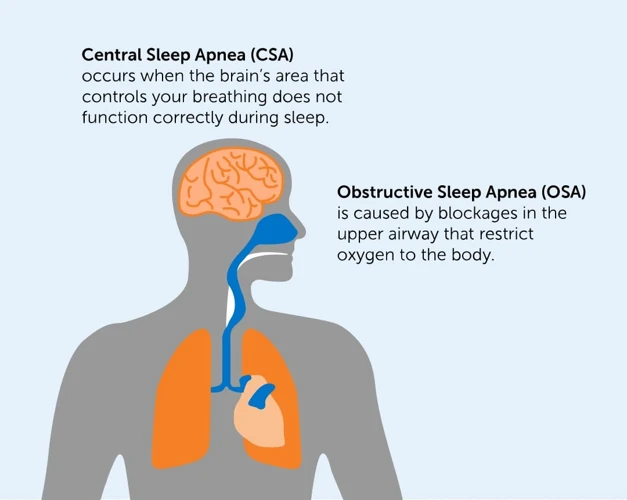
One of the most common sleep disorders is characterized by troubled breathing patterns, which can lead to a less restful sleep. It’s concerning because it can affect anyone, regardless of their age or gender. We’re talking about Sleep Apnea, a condition that is more common than people might think. It is essential to understand the symptoms, causes, and types of sleep apnea to seek appropriate treatment and prevent it from becoming a severe medical issue.
Types of Sleep Apnea
Sleep apnea is a common sleep disorder that affects millions of people worldwide. There are two main types of sleep apnea, each with its own unique characteristics and causes. Here are the two types of sleep apnea:
- Obstructive Sleep Apnea (OSA): This is the most common form of sleep apnea, accounting for roughly 84% of all sleep apnea cases. It occurs when the muscles at the back of the throat fail to keep the airway open, causing the individual to stop breathing for periods of 10 seconds or more throughout the night.
- Central Sleep Apnea (CSA): In contrast to OSA, CSA occurs when the brain fails to signal the muscles to breathe. This results in a lack of oxygen in the body, leading to disrupted sleep patterns and fatigue during the day. Central sleep apnea is less common than OSA and typically affects individuals with underlying medical conditions such as heart or neurological disorders.
It’s essential to understand the type of sleep apnea an individual has because it can impact the treatment plan. For OSA, continuous positive airway pressure (CPAP) machines, oral appliances, or surgery may be recommended. In contrast, CSA may require medical treatments such as medications or oxygen therapy. A proper diagnosis is essential to ensure that individuals receive the most effective treatment plan for their specific needs.
Symptoms of Sleep Apnea
Sleep apnea is a common sleep disorder that can affect people of all ages. Unfortunately, many people who suffer from sleep apnea are unaware of their condition, as the symptoms can often go unnoticed. However, there are several common symptoms that can indicate the presence of sleep apnea. These symptoms include:
| Symptom | Description |
| Snoring | Repeatedly loud and disruptive snoring during sleep |
| Pauses in Breathing | Intermittent breaks in breathing during sleep, which may be accompanied by choking, gasping, or snorting sounds upon awakening |
| Restless Sleep | Frequent tossing and turning, and difficulty staying asleep all night |
| Fatigue | Constant tiredness, even after a full night’s rest, which may affect the ability to concentrate or stay alert during daily activities |
| Headaches | Recurring headaches, especially in the morning, which may be accompanied by sore throat or dry mouth upon awakening |
| Moodiness | Frequent irritability, anxiety, or depression, often due to poor quality sleep and constant fatigue |
| High Blood Pressure | Elevated blood pressure that may be difficult to control with medication |
| Weight Gain | Unexplained weight gain due to increased appetite and slower metabolism, which may also exacerbate respiratory symptoms during sleep |
These symptoms can have a significant impact on a person’s quality of life, and if left untreated, sleep apnea can lead to more severe health problems over time. It is important to seek professional help if you or a loved one is experiencing any of these symptoms.
The Role of a Sleep Apnea Support System
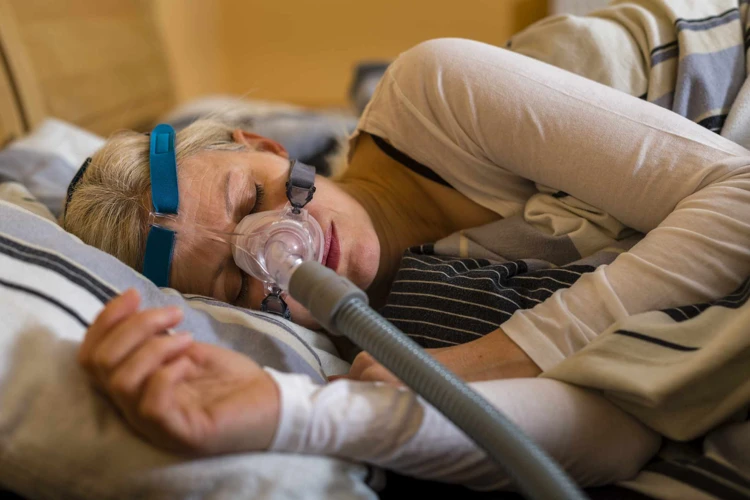
When it comes to managing sleep apnea, having a strong support system in place can make all the difference. Struggling with sleep apnea can leave individuals feeling isolated and hopeless, but a support system can provide the encouragement and resources needed to navigate this condition. But what exactly is a sleep apnea support system, and how does it benefit those with this condition? In this section, we will explore the vital role that a sleep apnea support system plays in the lives of individuals with sleep apnea, as well as the benefits it can offer for better managing this condition.
What is a Sleep Apnea Support System?
A Sleep Apnea Support System is a comprehensive and personalized approach to manage and treat sleep apnea. It is designed to provide patient education, support, and guidance throughout their sleep apnea journey. A supportive system comprises a team of healthcare professionals such as sleep specialists, respiratory therapists, and sleep technologists.
This system tailors the treatment to cater to the patient’s specific needs and entails the use of tools, machines, and equipment to relieve symptoms and provide adequate sleep.
The support system includes different approaches to address sleep apnea symptoms. These approaches are:
| Approach | Description |
|---|---|
| Continuous Positive Airway Pressure (CPAP) Therapy | It involves the use of a machine that uses pressurized air to keep the airways open and prevent them from collapsing while sleeping. A patient wears a mask that delivers air through the nose and/or mouth. |
| Oral Appliance Therapy | It involves wearing a custom-fit mouthpiece that repositions the lower jaw and tongue and keeps the airways open while sleeping. This approach is recommended for mild to moderate sleep apnea. |
| Surgery | In some cases, surgery may be necessary to correct structural issues that are causing sleep apnea, such as removing excess tissue, repairing the jaw, or removing the tonsils. |
A Sleep Apnea Support System aims to ensure the best possible treatment outcome for individuals with sleep apnea. Medical practitioners work together to provide a personalized approach that delivers maximum benefit to the patient. By identifying the root cause of sleep apnea, they can adjust the treatment and provide appropriate guidance and support.
The Benefits of a Sleep Apnea Support System
When it comes to managing sleep apnea, a sleep apnea support system can greatly benefit those affected. Here are some of the benefits of utilizing a support system:
| Benefit | Description |
|---|---|
| Improved Compliance | When using a sleep apnea support system, individuals are more likely to consistently comply with their prescribed treatment plan, leading to better health outcomes. |
| Customized Treatment Plans | Medical professionals who specialize in sleep apnea can provide personalized treatment plans that address the specific needs of each patient, increasing the effectiveness of the treatment. |
| Increased Access to Resources | A sleep apnea support system provides access to a variety of resources, such as support groups, educational materials, and assistance with insurance issues, making it easier for individuals to manage their condition. |
| Emotional Support | Suffering from sleep apnea can cause emotional strain, and having a support system in place can provide a safe space for individuals to express their concerns and receive emotional support from others who understand their struggles. |
A sleep apnea support system can provide a more comprehensive approach to managing sleep apnea, addressing not only the physical aspects of the condition, but also the emotional and social impact it can have on individuals and their families.
How the Support System Improves Quality of Sleep
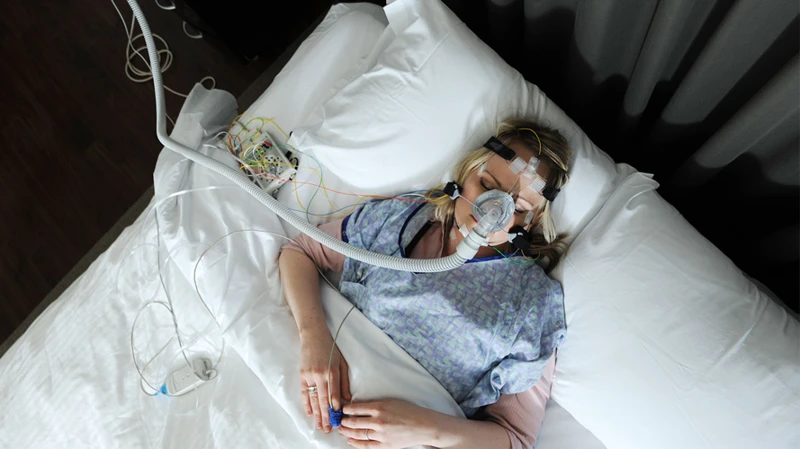
Getting quality sleep is essential to a person’s overall health and well-being. However, individuals with sleep apnea struggle to get the recommended amount of restful sleep each night. This is where a sleep apnea support system comes in, to address the underlying causes of the condition and improve the quality of sleep. In this section, we’ll look at some of the ways a sleep apnea support system can improve the sleep quality of those suffering from this condition. Let’s dive in.
CPAP Therapy
CPAP Therapy stands for Continuous Positive Airway Pressure, which is a type of treatment for sleep apnea. This therapy involves wearing a mask over the nose and/or mouth while sleeping, through which a continuous flow of air is delivered at a prescribed pressure level. This creates a positive pressure in the airway to prevent the airway from collapsing, thus allowing the person to breathe without interruption.
The benefits of CPAP therapy are numerous:
- Reduced snoring: Since the airway is kept open, snoring is significantly reduced.
- Better sleep quality: With improved breathing, the brain and body receive adequate oxygen during sleep, leading to better quality sleep.
- Reduced daytime sleepiness: Improved sleep quality leads to less daytime sleepiness and fatigue.
- Lower risk of health complications: Sleep apnea is associated with a higher risk of health problems like high blood pressure, heart disease, stroke, and diabetes. By treating sleep apnea with CPAP therapy, the risk of these complications can be reduced.
It is important to note that:
- CPAP therapy is typically prescribed by a sleep specialist as a long-term treatment for sleep apnea.
- The pressure settings on the CPAP machine should be adjusted by a healthcare professional. Too low of a pressure may not effectively treat sleep apnea, while too high of a pressure can lead to discomfort and difficulty sleeping.
- While CPAP therapy can be highly effective, it may take some time to get used to wearing the mask and sleeping with the machine.
CPAP therapy is a highly effective treatment for sleep apnea that can significantly improve quality of sleep, reduce daytime sleepiness, and lower the risk of health complications. It should be prescribed and adjusted by a healthcare professional to ensure maximum effectiveness and comfort.
Oral Appliance Therapy
Oral Appliance Therapy is another effective way to manage sleep apnea. This therapy involves the use of a custom-made oral appliance that fits in the mouth just like a mouthguard. The appliance works by keeping the airway open throughout the night. It does so by positioning the lower jaw and tongue in a way that prevents them from obstructing the airway.
The Advantages of Oral Appliance Therapy
Oral Appliance Therapy has its own set of advantages over other treatment options. Let’s take a look at some of them in the following html table:
| Advantages of Oral Appliance Therapy |
|---|
| Effective in managing mild to moderate obstructive sleep apnea |
| Non-invasive and less cumbersome than CPAP therapy |
| Easy to use and maintain |
| Portable and convenient for travel |
| Noisy breathing and snoring can be eliminated |
| No significant side effects when used as directed |
The Process of Oral Appliance Therapy
The process of getting an oral appliance involves a few steps. Firstly, the patient needs to consult a dentist or an orthodontist who specializes in oral appliance therapy. The specialist will examine the patient’s teeth, jaws, and airway to determine the most appropriate appliance design. After the design is finalized, the specialist will take an impression of the patient’s teeth to create a custom-fit appliance. The patient will then be advised on how to use and maintain the appliance properly.
The Effectiveness of Oral Appliance Therapy
Research has shown that oral appliance therapy can effectively manage mild to moderate obstructive sleep apnea. A study published in the Journal of the American Dental Association found that the therapy reduced the number of apnea and hypopnea episodes by more than 50% in 40% of the patients who used it. However, it is important to note that the effectiveness of oral appliance therapy depends on various factors such as the severity of the sleep apnea, the type of appliance used, and the patient’s adherence to the treatment plan.
Oral appliance therapy is a safe, non-invasive, and effective way to manage sleep apnea for those who cannot tolerate CPAP therapy or do not want to undergo surgery. With proper use and maintenance, it can help improve the quality of sleep and overall health.
Surgery
When it comes to treating sleep apnea, surgery is considered as a last resort. This means that it is typically only recommended after other treatments have failed. There are several surgical options available for sleep apnea, including:
- Uvulopalatopharyngoplasty (UPPP): This is the most common surgical procedure for sleep apnea. It involves removing excess tissue from the throat, including the uvula, tonsils, and adenoids. This procedure is often done in combination with other surgeries to maximize effectiveness.
- Maxillomandibular Advancement: This surgery involves moving the upper and lower jaws forward to create more space in the airway. It is a more invasive procedure that may take longer to recover from, but it has been shown to be effective for some patients.
- Tracheostomy: This is a procedure where a hole is made in the trachea (windpipe) and a tube is inserted to allow air to flow directly into the lungs. This is typically only used in extreme cases where other treatments have failed.
It’s important to keep in mind that surgery is not always effective in treating sleep apnea, and there are potential risks and complications involved. It’s crucial to have a thorough discussion with a healthcare professional to determine if surgery is the right option for you. Additionally, lifestyle changes and the use of a sleep apnea support system may also be recommended as part of a comprehensive treatment plan.
Managing Sleep Apnea for a Healthier You
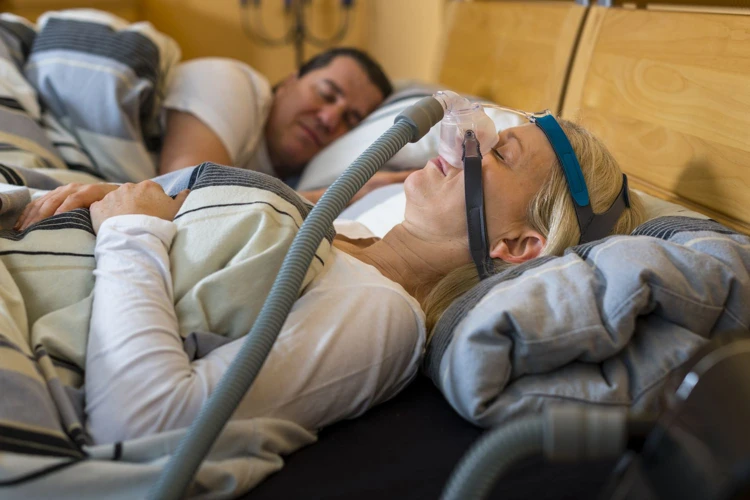
For people with sleep apnea, managing the condition is essential for a healthier and happier life. While there are various treatments and lifestyle changes that can improve the quality of sleep, it can be challenging to know where to start. It’s important to seek professional help and work with a sleep apnea support system team to develop a personalized management plan. In this section, we’ll explore some of the options available for managing sleep apnea and improving overall health.
Lifestyle Changes
Making certain lifestyle changes can significantly improve the symptoms of sleep apnea. The changes include:
- Weight loss: Excess weight around the neck can put pressure on the airway, leading to obstruction. Losing weight can reduce the pressure and make breathing easier.
- Exercise: Regular exercise can help you maintain a healthy weight and improve breathing patterns. Incorporating cardiovascular exercises, strength training and yoga can improve lung function.
- Avoiding alcohol and sedatives: Alcohol and sedatives can relax the throat muscles excessively, causing them to collapse and obstruct breathing. So, it is best to avoid them if you have sleep apnea.
- Quit smoking: Smoking can cause inflammation and narrow the airway. Quitting smoking can help reduce inflammation and open up the airway, leading to improved breathing patterns.
- Maintaining a regular sleep schedule: Going to bed and waking up at the same time every day can help regulate sleep patterns, making it easier to fall asleep and stay asleep.
- Changing sleep position: Sleeping on your back can exacerbate sleep apnea, as it causes the tongue and soft palate to fall back, obstructing the airway. Sleeping on your side can help prevent airway blockage.
- Using a humidifier: Adding moisture to the air can help reduce congestion and make breathing easier, especially during the dry winter months.
Incorporating these lifestyle changes, in addition to medical treatment, can help manage sleep apnea, leading to better quality of sleep and overall health.
Medical Treatment
When it comes to treating sleep apnea, medical treatment is often necessary. Some of the most common medical treatments for sleep apnea include:
- Continuous Positive Airway Pressure (CPAP) therapy: This treatment involves wearing a mask while you sleep that delivers a constant stream of air pressure to keep your airway open. CPAP therapy is often considered the most effective treatment for sleep apnea.
- Oral Appliance Therapy: Another treatment option for sleep apnea is oral appliance therapy. This involves wearing a device in your mouth that helps keep your airway open while you sleep. Oral appliances can be made by dentists or orthodontists and are custom-fit to your mouth.
- Surgery: For severe cases of sleep apnea, surgery may be necessary. There are several surgical procedures available, including uvulopalatopharyngoplasty (UPPP), which removes excess tissue in the throat to widen the airway, and maxillomandibular advancement (MMA), which moves the upper and lower jaw forward to create more room in the airway.
It’s important to talk to your healthcare provider about which treatment option is best for you based on the severity of your sleep apnea and any other underlying health conditions you may have. While medical treatment can be effective in managing sleep apnea, lifestyle changes such as maintaining a healthy diet and exercise routine can also be beneficial.
The Connection Between Sleep Apnea Support and Dreaming
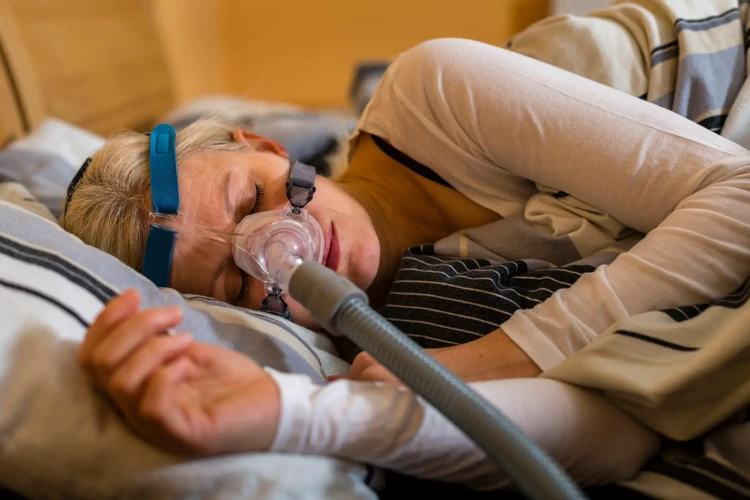
It may seem like something out of a science fiction movie, but dreaming is a vital part of our nightly routine. Our brains use this time to process and make sense of the events and emotions of the day. However, for those who suffer from sleep apnea, their dreams may not be as restful or productive.
Sleep apnea disrupts the natural sleep cycle, causing interruptions in breathing and leading to fragmented sleep. This can result in a higher percentage of REM sleep, which is the stage of sleep where dreaming occurs. While dreaming is important, too much REM sleep can lead to excessive dreaming, nightmares, and even hallucinations. This can prevent those with sleep apnea from getting the restorative sleep they need.
This is where a sleep apnea support system can come in handy. By using techniques such as Continuous Positive Airway Pressure (CPAP) therapy, oral appliance therapy, or surgery, sleep apnea can be managed, allowing the individual to experience a more natural sleep cycle. This can lead to a reduction in the amount of REM sleep and excessive dreaming, leading to better quality sleep overall.
It’s important to note that seeking professional help is crucial in managing sleep apnea and improving the quality of one’s sleep. By working with a healthcare provider and using a proper support system, individuals can enjoy a better night’s rest and experience the full benefits of restorative sleep, including vivid and productive dreaming.
The Importance of Seeking Professional Help
Suffering from sleep apnea can be both frightening and unhealthy. This medical condition can cause interruptions in breathing while a person is sleeping. Consequently, it can also lead to multiple health issues over time. Seeking professional help is crucial for managing and treating sleep apnea effectively.
Without proper diagnosis from healthcare providers, sleep apnea can worsen over time and interfere with the quality of a person’s life. In order to receive a proper diagnosis, individuals should visit a medical professional who specializes in sleep disorders. This medical professional can perform a sleep study to determine the extent and severity of the condition.
Additionally, healthcare providers can provide options for treating sleep apnea. Although there are various treatments available, not all are suitable for every individual. A medical professional can review the individual’s symptoms and health history to determine which treatment method would be most effective for them.
Managing and treating sleep apnea requires ongoing care and support. A qualified healthcare professional can monitor individuals for any changes or progression of symptoms. This can be done through scheduled follow-up appointments and regular check-ins.
Seeking professional help for sleep apnea can greatly improve an individual’s quality of life. Proper treatment can reduce symptoms and improve energy levels, allowing individuals to participate in everyday activities without feeling fatigued. It can also reduce the risk of long-term health concerns associated with untreated sleep apnea, such as high blood pressure, heart disease, and stroke.
It is essential to seek professional help for individuals experiencing sleep apnea. Through proper diagnosis, treatment, and ongoing support, individuals can effectively manage the condition and improve their overall health and well-being.
Conclusion
In conclusion, sleep apnea is a serious health condition that affects many individuals globally. It not only leads to fragmented sleeping patterns, but also increases the risk of developing chronic disorders such as hypertension, stroke, and diabetes. It is therefore important to seek professional help if experiencing symptoms such as loud snoring, daytime fatigue, and mood swings.
A sleep apnea support system plays a vital role in managing this condition. It includes different treatment options such as CPAP therapy, oral appliance therapy, and surgery. These treatment methods not only improve the quality of sleep but also reduce the risk of developing other related health conditions. However, lifestyle changes such as losing weight, avoiding alcohol and tobacco, and regular exercise can also be effective in managing sleep apnea.
It is crucial to be aware of the connection between sleep apnea support and dreaming. Proper treatment can improve the quality of sleep, leading to more restorative and refreshing sleep. This can lead to more vivid and meaningful dreams as well.
In conclusion, managing sleep apnea requires a multi-faceted approach, including lifestyle changes, medical treatment, and the support of a sleep apnea support system. Seeking professional help and taking steps to manage the condition can greatly improve one’s overall well-being and quality of life.
Frequently Asked Questions
What Causes Sleep Apnea?
Sleep apnea is caused by the relaxation of the muscles in the back of the throat, which block the airway and disrupt breathing during sleep.
Who is at Risk for Sleep Apnea?
Anyone can develop sleep apnea, but certain factors like obesity, smoking, and a family history of sleep apnea can increase the risk.
How is Sleep Apnea Diagnosed?
Sleep apnea is typically diagnosed through a sleep study, which measures breathing patterns and oxygen levels during sleep.
What are the Consequences of Untreated Sleep Apnea?
Untreated sleep apnea can lead to high blood pressure, heart disease, stroke, and other health problems. It can also result in daytime fatigue and decreased quality of life.
What is a CPAP Machine?
A CPAP machine is a medical device that delivers continuous positive airway pressure to keep the airway open during sleep. It is a common treatment for sleep apnea.
What is an Oral Appliance?
An oral appliance is a custom-fitted device that is worn in the mouth during sleep to help keep the airway open. It is another treatment option for sleep apnea.
Is Surgery an Effective Treatment for Sleep Apnea?
Surgery can be effective in treating sleep apnea in certain cases, but it is typically reserved for severe cases that have not responded to other treatments.
Can Lifestyle Changes Help Manage Sleep Apnea?
Lifestyle changes like losing weight, quitting smoking, and avoiding alcohol and sedatives can help manage sleep apnea and improve overall health.
What is the Relationship Between Sleep Apnea and Dreaming?
Sleep apnea can disrupt the normal sleep cycle, reducing the amount of time spent in deep sleep, which is necessary for dreaming to occur.
Why is it Important to Seek Professional Help for Sleep Apnea?
Professional help can ensure an accurate diagnosis and effective treatment of sleep apnea, which can improve overall health, quality of life, and even prevent serious health problems.








